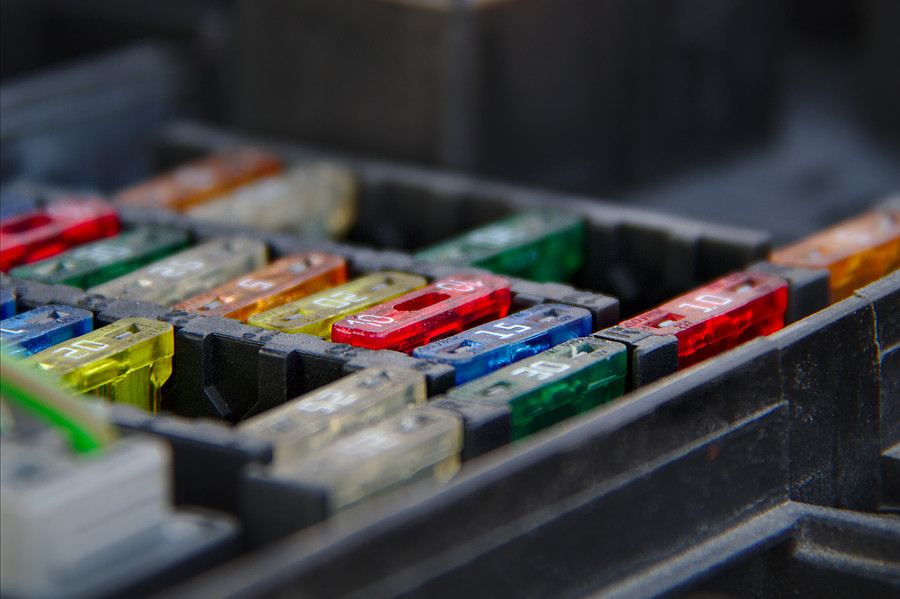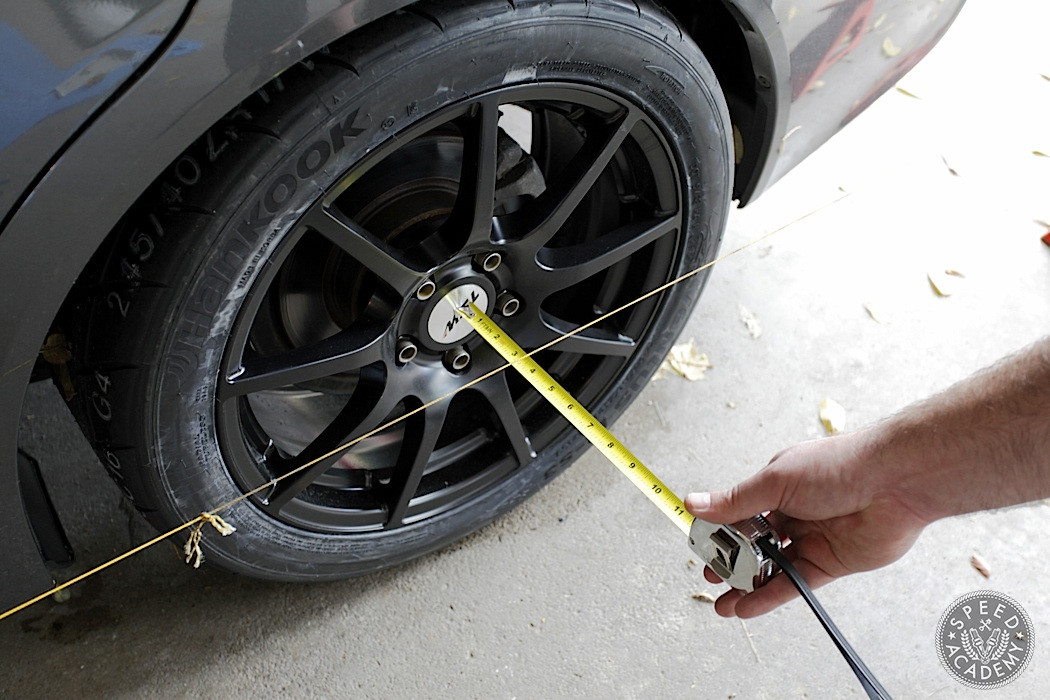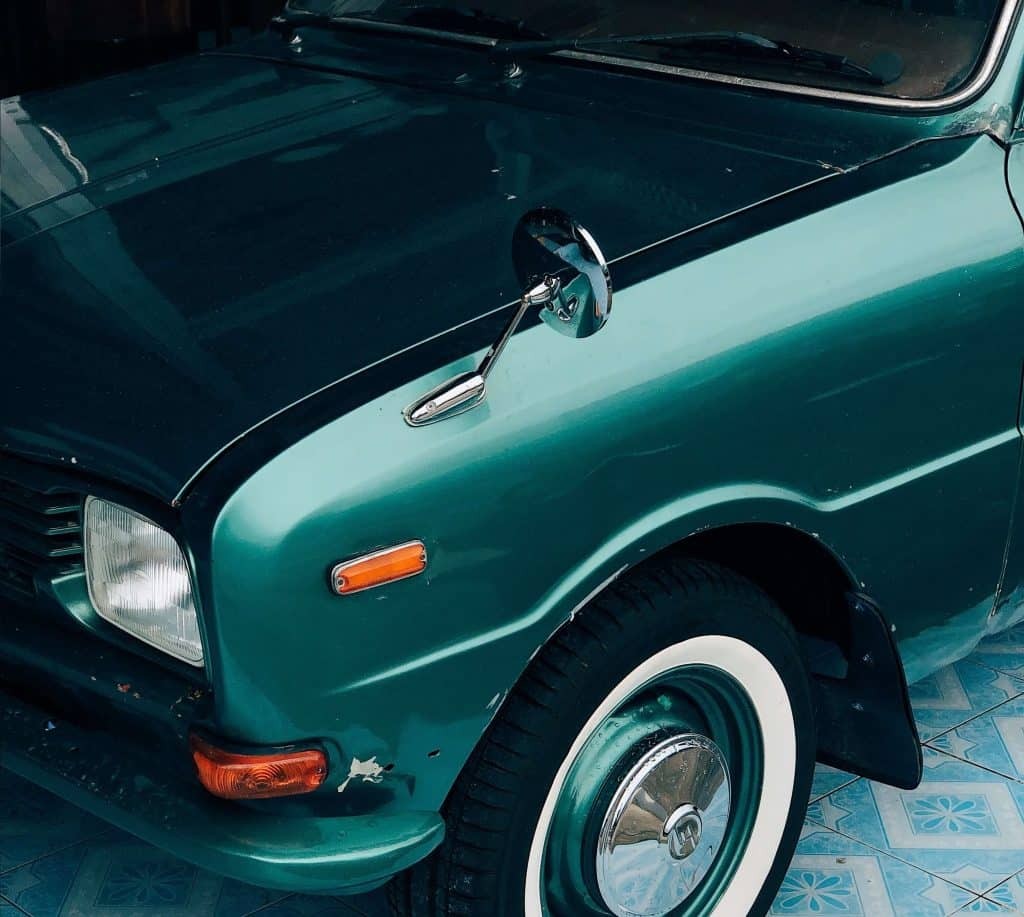How to Fix Car Speakers Crackling: A Comprehensive Guide
Crackling car speakers can ruin your driving experience, turning your favorite tunes into a frustrating mess. Understanding the causes and knowing how to fix car speakers crackling is crucial for any car owner who values quality sound. This guide from CARDIAGTECH.NET provides expert insights and practical solutions to diagnose and resolve crackling speaker issues, ensuring you get back to enjoying your music. We’ll explore everything from faulty connections to damaged components, helping you troubleshoot and restore your car audio system to its optimal performance.
1. Why Do My Car Speakers Crackle?
Several factors can contribute to crackling sounds in your car speakers. Identifying the root cause is the first step in resolving the issue.
1.1 Faulty Amplifier
Can a faulty amplifier cause car speaker crackling? Yes, a failing amplifier is a common culprit. According to research from the Audio Engineering Society, amplifier malfunction often leads to signal distortion, resulting in crackling sounds.
Solution: Test your amplifier using a multimeter to check for proper voltage output. If the amplifier is not functioning correctly, consider repairing it or replacing it with a new one from CARDIAGTECH.NET.
1.2 Damaged Wires
Are damaged wires a reason for crackling speakers? Absolutely. Over time, speaker wires can become frayed, corroded, or damaged, leading to poor signal transmission.
Solution: Inspect all speaker wires for any signs of damage. Replace any damaged wires with high-quality replacements from CARDIAGTECH.NET to ensure a stable connection.
1.3 Incorrect EQ Settings
Can incorrect EQ settings cause distortion? Yes, improper equalizer settings can strain your speakers and amplifier, leading to distortion and crackling.
Solution: Adjust your car’s EQ settings to ensure that the bass, mid, and treble levels are appropriately balanced. Experiment with different settings to find the optimal sound quality without over stressing your system.
1.4 Loose Wire Connections
Why do loose wire connections cause crackling? Loose connections disrupt the flow of electrical signals, leading to intermittent sound and crackling.
Solution: Check all connections between the speakers, head unit, and amplifier. Ensure all connections are secure and properly tightened. Use dielectric grease on the connections to prevent corrosion and maintain a good connection.
1.5 Physical Damage and Interference
Can physical damage cause crackling? Yes, physical damage to the speaker cone, voice coil, or surround can cause crackling and popping sounds.
Solution: Inspect the speakers for any visible damage. Also, external electronic interference from devices or damaged aux cables can cause speaker crackling. If the damage is significant, consider replacing the speakers with new ones from CARDIAGTECH.NET.
2. Necessary Steps to Troubleshoot Car Speaker Crackling
Diagnosing the exact cause of car speaker crackling requires a systematic approach. Here are the essential steps to troubleshoot the issue effectively.
2.1 Inspecting Wires
How do I check my speaker wires? Examine all wiring connections between the speakers and the car audio system to identify any issues.
- Check for Frayed or Damaged Wires: Look for any cuts, tears, or exposed wires that could be causing a short circuit.
- Ensure Secure Connections: Verify that all wire connections are firmly attached to the speakers, amplifier, and head unit.
- Use a Multimeter: Use a multimeter to test the continuity of the wires and identify any breaks in the circuit.
Alt text: A mechanic carefully inspecting car speaker wires for damage and loose connections, using a flashlight for better visibility.
2.2 Checking Speaker Bass, Treble, and Volume
How do bass, treble, and volume levels affect speaker performance? Exceeding the power limitations of your speakers can lead to distortion and crackling. According to a study by Harman International, speakers operated at high volumes are more prone to damage.
- Adjust Volume Levels: Ensure that the volume is set to a reasonable level, avoiding excessive loudness that can strain the speakers.
- Balance Bass and Treble: Adjust the bass and treble settings to avoid overemphasizing certain frequencies, which can cause distortion.
2.3 Checking Various Components of the Speaker
What components should I inspect inside the speaker? Inspect the cones, voice coils, and other internal parts of the speaker for any signs of damage.
- Inspect the Cone: Look for tears, punctures, or other damage to the speaker cone.
- Check the Voice Coil: Inspect the voice coil for any signs of burning, distortion, or contact with the magnet.
- Examine the Surround: Check the speaker surround for cracks or deterioration.
2.4 Checking for Water Damage
Can water damage cause car speakers to crackle? Yes, moisture can corrode the speaker components and cause electrical issues.
Solution: Inspect the area around the speakers for any signs of water damage. Dry the affected areas and consider using a water-resistant speaker cover to prevent future damage.
2.5 Checking for Dust and Debris
How does dust affect speaker performance? Dust and debris can accumulate inside the speaker, interfering with its operation and causing crackling sounds.
Solution: Use a soft brush or vacuum cleaner to remove any dust or debris from the speaker components. Be gentle to avoid damaging the speaker.
3. How to Fix Car Speakers Crackling Sound: Detailed Steps
Addressing the issue of crackling car speakers involves a series of precise steps. Here’s a comprehensive guide to help you resolve the problem effectively.
3.1 Step 1: Fixing Wire Connection Issues
How do I fix damaged wire connections? Repairing or replacing faulty wire connections is crucial for restoring sound quality.
- Inspect the Wires: Examine all the wires connected to your speakers, head unit, and amplifier. Look for any signs of damage, such as fraying, cuts, or corrosion.
- Replace Damaged Wires: If you find any damaged wires, replace them with new, high-quality speaker wires from CARDIAGTECH.NET. Ensure the new wires are the same gauge or thicker to handle the current load.
- Secure the Connections: Use wire strippers to expose fresh wire ends and securely connect them to the terminals. Use crimp connectors or solder the connections for a more secure and lasting bond.
3.2 Step 2: Addressing Amplifier Faults
What if the amplifier is causing the crackling? A faulty amplifier can introduce noise and distortion into the audio signal.
- Test the Amplifier: Use a multimeter to check the voltage output of the amplifier. Ensure it is delivering the correct power to the speakers.
- Check the Ground Connection: Verify that the amplifier has a solid ground connection. A poor ground can cause noise and distortion.
- Replace the Amplifier: If the amplifier is not functioning correctly, consider replacing it with a new one from CARDIAGTECH.NET. Choose an amplifier that matches the power requirements of your speakers.
3.3 Step 3: Setting Up the Equalizer Properly
How do I adjust the equalizer for optimal sound? Proper EQ settings can prevent distortion and enhance sound quality.
- Understand EQ Bands: Familiarize yourself with the different frequency bands on your equalizer (bass, mid, treble).
- Adjust Bass Levels: Adjust the bass levels to add depth to the sound without causing distortion. Avoid boosting the bass excessively, as this can strain the speakers.
- Balance Mid and Treble: Adjust the mid and treble levels to achieve a balanced sound. The mid frequencies provide clarity, while the treble frequencies add sparkle and detail.
3.4 Step 4: Fixing Speaker Cones, Voice Coils, and Water Damage
What if the speaker components are damaged? Addressing physical damage to the speaker components is essential for restoring sound quality.
- Repair the Speaker Cone: If the speaker cone has minor tears or punctures, you can repair it using a speaker repair kit. Apply a thin layer of adhesive to the damaged area and allow it to dry.
- Replace the Voice Coil: If the voice coil is damaged, it may be necessary to replace it. This requires technical knowledge and careful handling. Consider seeking professional assistance from CARDIAGTECH.NET.
- Dry Water Damage: If the speaker has been exposed to water, dry the affected areas thoroughly. Use a hairdryer on a low setting to gently dry the speaker components.
4. Regular Maintenance Tips to Prevent Crackling Sounds
Preventive maintenance is key to ensuring your car speakers remain in optimal condition. Here are some essential tips.
- Maintain Decent Volume Levels: Listening to music at reasonable volume levels prevents overheating and damage to the speakers.
According to a study by the National Institute for Occupational Safety and Health, prolonged exposure to high-volume music can damage speakers and cause hearing loss.
- Clean the Speaker Surround Regularly: Removing dust and debris prevents sound distortion and maintains sound clarity.
- Check Wire Connections Periodically: Tightening loose connections ensures a stable electrical signal and prevents crackling sounds.
- Adjust the Equalizer Properly: Using the correct EQ settings prevents over stressing the speakers and maintains optimal sound quality.
- Avoid Extreme Heat Inside the Car: Extreme heat can damage speaker components and cause sound distortion.
- Avoid Bass-Boosted Music: Bass-boosted music can strain the speakers and cause them to crackle.
- Purchase High-Quality Car Speakers: Investing in high-quality speakers from CARDIAGTECH.NET ensures longevity and optimal performance.
- Consider Durable and Environmentally Resistant Materials: Choosing speakers made from durable materials helps them withstand harsh conditions and last longer.
- Inspect the Car’s Electrical System: Regular electrical system checks prevent overheating and potential damage to the speakers.
- Use Shields for Car Speakers: Shields protect the speakers from extreme temperatures, moisture, and water damage.
5. How to Stop Car Speakers Crackling: Community Insights
Online forums and communities often provide valuable insights into common car audio problems. Let’s explore some community perspectives on how to address crackling car speakers.
5.1 Reddit Discussions
What do Reddit users say about fixing crackling speakers? Many Reddit users attribute crackling sounds to damaged wires, loose connections, faulty amplifiers, and improper EQ settings.
Reddit User Tips:
- Check Wire Connections: Reddit users often recommend checking and tightening all wire connections to resolve crackling issues.
- Replace Damaged Wires: Many users suggest replacing frayed or damaged wires to improve sound quality.
- Adjust EQ Settings: Reddit users advise adjusting EQ settings to avoid over stressing the speakers.
5.2 Common Solutions from Online Forums
What other solutions are suggested in online forums? Online forums highlight the importance of regular maintenance and proper installation.
Forum User Tips:
- Clean Speakers Regularly: Forum users recommend cleaning speakers regularly to remove dust and debris.
- Inspect for Water Damage: Many users advise checking for water damage and drying the speakers thoroughly.
- Seek Professional Help: Forum users often suggest seeking professional help for complex issues like damaged voice coils.
6. Conclusion
Dealing with crackling car speakers can be frustrating, but with the right knowledge and steps, you can effectively diagnose and resolve the issue. From inspecting wire connections to addressing amplifier faults, this guide has provided you with comprehensive solutions. Remember, regular maintenance and careful attention to your audio settings can prevent future problems and keep your car audio system sounding its best.
If you’re experiencing crackling sounds in your car speakers, follow these steps to troubleshoot and fix the issue. For high-quality car speakers, amplifiers, and other audio components, visit CARDIAGTECH.NET.
Don’t let crackling car speakers ruin your driving experience. Take action today and restore your car audio system to its optimal performance.
7. Call to Action
Experiencing persistent crackling in your car speakers? Don’t let a faulty audio system dampen your driving experience. Contact CARDIAGTECH.NET today for expert advice and top-quality car audio solutions. Whether it’s diagnosing the issue, replacing damaged components, or upgrading your entire system, our team of professionals is here to help. Call us at +1 (641) 206-8880 or visit our website CARDIAGTECH.NET to explore our range of products and services. Located at 276 Reock St, City of Orange, NJ 07050, United States, we are ready to assist you with all your car audio needs. Let us help you enjoy crystal-clear sound on every drive. Reach out now and experience the CARDIAGTECH.NET difference.
8. FAQ: Addressing Your Questions About Car Speaker Crackling
8.1 Why are my car speakers crackling at low volume?
Crackling at low volume often indicates a loose connection or a damaged speaker component. Check the wiring and inspect the speaker for any physical damage.
8.2 Can a blown fuse cause speaker crackling?
While a blown fuse typically results in complete loss of sound, a partially blown or loose fuse can sometimes cause intermittent crackling. Inspect and replace any faulty fuses.
8.3 How do I know if my car amplifier is faulty?
Signs of a faulty amplifier include distorted sound, low output, overheating, and crackling noises. Use a multimeter to test the amplifier’s voltage output.
8.4 What tools do I need to diagnose car speaker problems?
Essential tools include a multimeter, wire strippers, crimp connectors, a socket set, and a flashlight. A speaker test tone generator can also be helpful.
8.5 How often should I inspect my car speakers?
Inspect your car speakers at least every six months or whenever you notice a decline in sound quality. Regular inspections can help prevent minor issues from becoming major problems.
8.6 Can aftermarket speakers fix crackling issues?
Yes, replacing old or damaged speakers with high-quality aftermarket speakers from CARDIAGTECH.NET can resolve crackling issues and improve overall sound quality.
8.7 What is the best way to clean car speakers?
Use a soft brush or vacuum cleaner to gently remove dust and debris from the speaker components. Avoid using harsh chemicals or liquids, which can damage the speaker.
8.8 How can I protect my car speakers from water damage?
Use water-resistant speaker covers and ensure proper drainage in the car doors and trunk. Avoid parking in areas prone to flooding.
8.9 Are Bluetooth connections a common cause of speaker crackling?
While Bluetooth connections themselves don’t typically cause crackling, interference from other electronic devices or a weak Bluetooth signal can sometimes result in audio distortion.
8.10 When should I seek professional help for car speaker issues?
If you’re unable to diagnose or fix the crackling issue yourself, or if the problem involves complex components like the amplifier or voice coil, seek professional help from CARDIAGTECH.NET.
Remember, maintaining your car audio system is essential for enjoying high-quality sound on every drive. Whether you need expert advice, top-quality components, or professional installation services, CARDIAGTECH.NET is here to help. Contact us today and let us help you restore your car audio system to its optimal performance.





